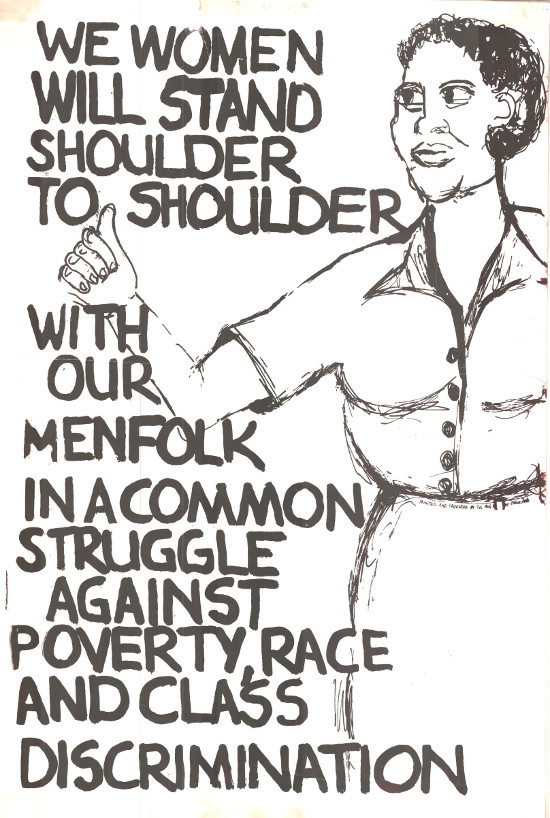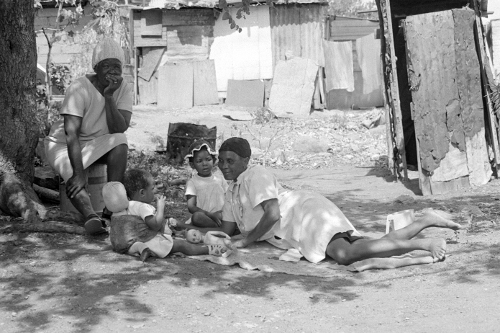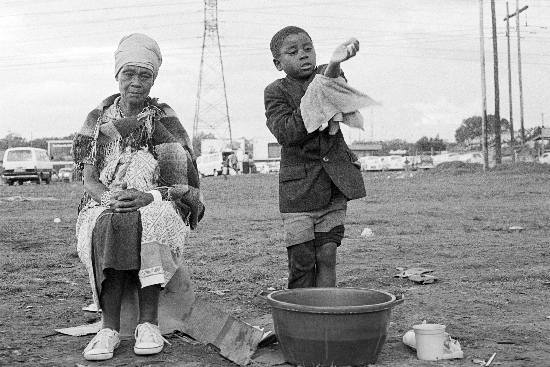
MOTHER, WOMAN
Mother, woman:
Walk and raise your fist,
Affirm your desire to be free.
You are soil. You are sap.
You are strength. You are work.
Thus you are life.
...
Mother, woman: the Revolution is you
Poem from 'Women's Voice' - NOW newsletter, 1985

Because of, and in addition to this triple oppression, many women activists struggled with the tensions that existed between these roles.
Men struggled to see women in activist roles. Many came from conservative patriarchal societies which believed that women should occupy traditional roles. In other words, their place was in the home as mothers and wives.
Even in the battlefields of the struggle,fellow comrades could not see women as equal. Often women in the MK training camps were abused sexually by their fellow comrades.
 Women activists occupied a difficult space trying to balance their commitments to the various roles they may have - as wives, mothers, workers, soldiers, activists.... They were caught in a balancing act between keeping their family afloat within their homes and making a difference in the wider society.
Women activists occupied a difficult space trying to balance their commitments to the various roles they may have - as wives, mothers, workers, soldiers, activists.... They were caught in a balancing act between keeping their family afloat within their homes and making a difference in the wider society.
As Mama Lydia,the trade unionist expressed:
“That's the problem with married women in the organisation. You’re in the middle and don’t know what to do. ”
Exhibitions in the classroom
Reading the past
SOURCE: ‘Mother, Woman’, poem from NOW newsletter, 1985.
Read the poem and answer the questions.
1. What is the main message of this poem?
2. Find three examples that affirm women (show them in a positive light).
3. Find three examples that suggest that women were not treated equally by their fellow male comrades.
4. Explain why some men in the struggle did not treat women activists with the respect they deserved.
SOURCE: Interview with Mama Lydia, Speak Out, date unknown.
"After I became a shop steward we had excessive meetings, maybe twice a week. We'd have these meetings after work. My husband got very unhappy and thought I was making excuses about meetings when I was going out jolling. When we got dismissed it was worse because he felt we deserved it. You know what husbands are like. He'd complain that I didnt do anything - cook, make tea or do washing for him. It's true that I preferred to do the washing at night rather than missing a meeting. I'd rather strain and overwork at night to satisfy him. But he was not too happy. He needed me to be with him. But he couldn't put me off because I felt it was important to carry on. Now he's got used to it and he doesn't worry me so much. That's the problem with married women in the organisation. You're in the middle and don't know what to do. Even at work if you think of the problems at home you don't concerntrate." [Mama Lydia, a union organiser]
Read Lydia’s interview above and answer the questions.
1. Why did Lydia’s husband resent her union work?
2. How did his attitude place pressure on Lydia?
3. How does the poet and Lydia deal with the sexism that they encounter?



